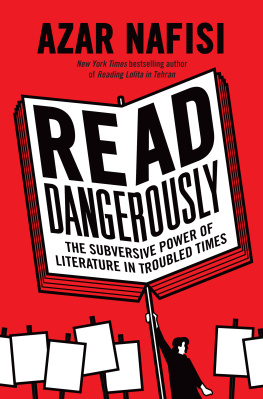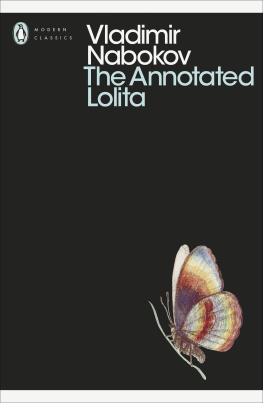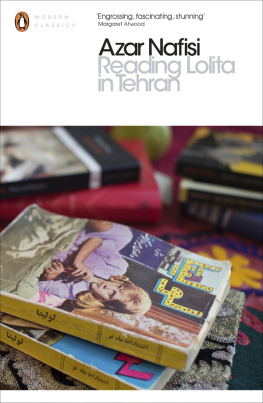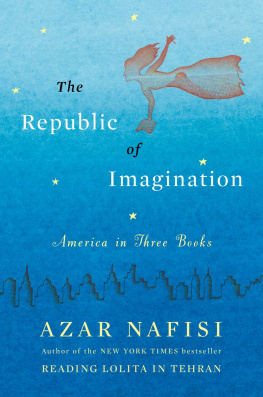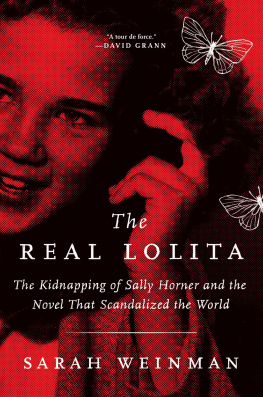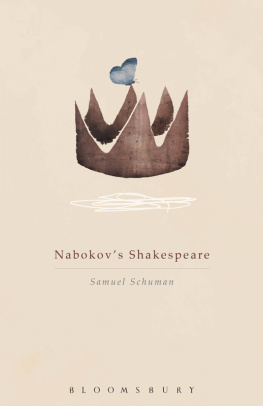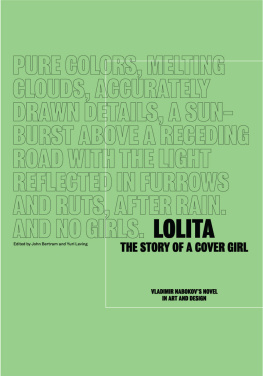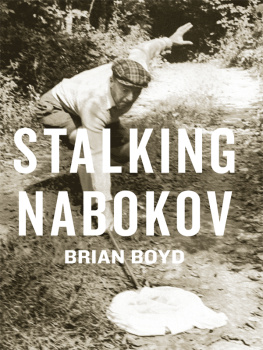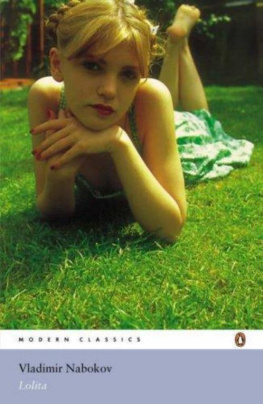That Other World
That Other World
Nabokov and the Puzzle of Exile

Azar Nafisi

Translated from the Persian by Lotfali Khonji
Edited by Azar Nafisi and Valerie Miles

Copyright Azar Nafisi 1994.
Originally published in Farsi by Tarh-e No Publishing.
Published by arrangement with the author.
English translation copyright 2019 by Lotfali Khonji.
Notes translated by Dorna Khazeni. English translation of the notes copyright 2019 by Yale University.
All rights reserved.
This book may not be reproduced, in whole or in part, including illustrations, in any form (beyond that copying permitted by Sections 107 and 108 of the U.S. Copyright Law and except by reviewers for the public press), without written permission from the publishers.
Yale University Press books may be purchased in quantity for educational, business, or promotional use. For information, please e-mail sales.press@yale.edu (U.S. office) or sales@yaleup.co.uk (U.K. office).
Set in Bulmer type by Tseng Information Systems.
Printed in the United States of America.
Library of Congress Control Number: 2018957963
ISBN 978-0-300-15883-0 (hardcover : alk. paper)
A catalogue record for this book is available from the British Library.
This paper meets the requirements of ANSI/NISO Z39.48-1992 (Permanence of Paper).
10 9 8 7 6 5 4 3 2 1
To my students in Iran, and my family, Bijan, Negar, and Dara Naderi
One day while disrupting the strata of sense
and descending deep down to my wellspring
I saw mirrored, besides my own self and the world,
something else, something else, something else.
Fame
Contents
ONE
Life: Speak, Memory
TWO
Reality: The Gift, Look at the Harlequins!, The Real Life of Sebastian Knight
THREE
The Oppressor and the Oppressed: Invitation to a Beheading, Bend Sinister
FOUR
Cruelty: Pnin
FIVE
Genius and Madness: Pale Fire
SIX
Love: Lolita
SEVEN
Heaven and Hell: Ada or Ardor
Introduction to the English-Language Edition
Volodya
It all started with this book. I mean the way I have written my other books has been shaped by the process of writing this one. Like a life story, a book has its own murky history, shaped by complex circumstances, unexpected events, and strange coincidences. In this case, the story of those diverse factors, coming together at a specific time and place can provide a reasonable answer to the question, why Nabokov? Why write a book about Nabokov in a country now called the Islamic Republic of Iran, that was once called Iran and before that Persia? What makes Nabokov relevant to life in the Islamic Republic?
I could, of course, count all my connectionsreal or imaginedto Nabokov, beginning with the long and tumultuous history of the relations between Iran and its northern neighbor Russia, and Russias influence on shaping Irans modern history and culture. There is an undiminished sense of humiliation and grievance among Iranians about their countrys devastating defeats in the nineteenth century at the hands of Russians, which led to Iran ceding the Caucasus and half of the Caspian Sea to Russia, and then there is Russias and later the Soviet Unions immense influence in shaping Irans modern political ideologies as well as its literary taste and tendenciesinfluences in the best and the worst sense of the word: great literature and Communist ideology. Iran seems to have followed Russiathankfully, on a smaller scalein its rebellion against political dictatorship, creation of a short-lived liberal interim government, and finally a violent ideological totalitarian revolution.
I can also cite the influence of Russian literature on Iranian intellectuals, and on my own education. By the time I was fifteen I had read many of the books Nabokov had read: not just Hugo, Stendhal, Austen, and Dickens, but also Tolstoy, Gogol, Dostoevsky, Turgenev, and Chekhov. To stretch the similarities, I might reference my own liberal education in a family that was part of the upper class, yet disdainful of it. My father became the youngest mayor of Tehran, very popular, and my mother was one of the six women first elected to the Iranian parliament in 1963; both were rebels against the very institutions they served. My mother did not last more than a term, and my father was rewarded for insubordination toward the prime minister and the minister of interior with four years without a trial in a temporary jail, until his actual trial and full exoneration. Not just my parents but most of the Nafisi clan were unimpressed by or uninterested in wealth and class, though they were informed by education and culture, about which they could become tediously snobbish. And then of course, like Nabokov, I became an exile in America. All these facts could have had some effect on how I connect to Nabokov. But I dont think any of them was a real factor in shaping my views of Nabokov or my fascination with his work. Nor do I believe in using a work of fiction as an extension or allegory for my own or any other life story.
In writing this book I wanted to get away from the kind of learned literary essays that were popular in Iran and that I had been writing. I was bored with that kind of essay, I felt I was still writing college term papersbut even in college I had strayed from the conventional way of writing those often uninspiring texts. My book was to be about Nabokov, but not just a literary analysis of his fiction. My focus would be the interdependence of fiction and reality and the intersections where the two meet, each turning into a metaphor for the other. I wanted to narrate rather than explicate how different times and circumstances have shaped my views and interpretations of Nabokovs fiction, and how reading his books has reflected those realities while changing and subverting my perceptions of them. The book was to be a narrative of my experiences and Nabokovs fictional works.
I spent many exciting and anxious hours trying to find the right balance between my real and fictional experiences. For one thing, I discovered that reality is not as concrete and indisputable as it appears, or as we want it to be, and fiction is not as unreal as we believe it to be. But that was not a problem; the main drawback was related to the very reality I was trying to articulate: that reality itself would become the key obstacle standing in the way of writing my book. And perhaps one of the biggest incentives for writing it.
I remember vividly the moment I discovered how I wanted to write the first sentence of my book. I had just visited the Iranian poet Bijan Elahi, one of the two people I knew in Iran of that time who really knew Nabokovnot simply familiar with his work, he was genuinely passionate about it. (The other expert was a brilliant and reclusive literary critic whom I called the magician.) The day had been one of those sunlit fall days. Elahis house was situated in the older part of northern Tehran, close to the mountains, still preserving its dusty quality, the aroma of earth, and the leaves rising with the dust as I walked the narrow alley to his house. The living room was cool and dark, large French windows opening into a shaded, tree-filled garden, the evergreens keeping the sun out. It seemed as if that particular garden had deliberately resisted the colors of fall. I had enthusiastically explained to Elahi why I wanted to write about Nabokov, why I felt this was so relevant to the times we lived inand yes, yes, I knew that did not really matter, that great literature is timeless, but then, there we were: even if we were not living in exceptional times, our times in one way or another affect how we read and write.
Next page

